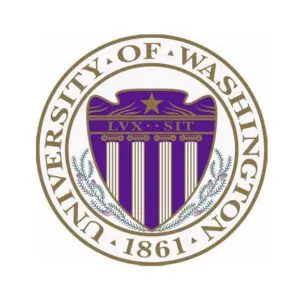Timeframe: 2017 – 2019
Goal: Understand growth mechanisms and identify potential therapeutic targets
Principal Investigator: Raymond Yeung, MD, Professor of Surgery

Study overview: Fibrolamellar cancer (FLC) is one of the most lethal form of liver cancer in adolescents and young adults. Currently, there is no effective therapy for these patients besides surgery. Armed with a novel set of immortalized cell lines developed at the University of Washington that bear the characteristic FLC mutation (the DNAJB1-PRKACA gene fusion), this study sought to advance the understanding of the mechanisms that drive FLC development by:
- Identifying protein kinase pathways that are activated downstream of the DNAJB1-PRKACA gene fusion using a combination of global and targeted phosphoproteomic analyses.
- Functionally validating these results using FLC cell lines as well as human FLC samples.
- Investigating the role of HSPs in FLC, including their pro-survival function in keeping cells alive during stress, based on preliminary observations that the mutant protein associates with heat shock protein (HSP) 70.
Together, these studies aimed to unveil mechanistic insights and new therapeutic targets that will accelerate a cure for this deadly disease.
Key findings: The study team identified approximately10 kinases that affected the proliferation of FLC-expressing cells. In this study, researchers also found that DNAJ-PKAc acts like a scaffold, bringing together other proteins that contribute to the development of the cancer. They established that the fusion protein, DNAJ-PKAc is stabilized by its association with A-kinase anchoring proteins and the chaperon protein Hsp70. It also interacts with a kinase module known as RAF-MEK-ERK. This leads to the activation ERK signaling pathways, which in turn activates other downstream kinases which culminate in increased cell proliferation.

Drug combinations that inhibit Hsp70 and MEK (from the RAF-MEK-ERK module) led to the reduced proliferation of cells expression the DNAJ-PKAc protein. As a next step, these results were being tested in patient-derived cell lines and mouse models of FLC.
In May 2019, the key results of this study were published in the journal eLife. The full text of the published article, “An acquired scaffolding function of the DNAJ-PKAc fusion contributes to oncogenic signaling in fibrolamellar carcinoma“, can be read here.
Implications: These results established the importance of interaction between mutant fusion kinase and scaffolding proteins and chaperones. Through such functional cross-talk, DNAJ-PKAc most likely affects many signaling pathways in specific cellular subdomains to promote oncogenesis. This study provided a functional model of the fusion protein and effect on kinases.
The study also suggested that a combination of Hsp70 and MEK inhibition may offer a potential combination therapy for FLC. However, that utility is not clear and should be tested in other model systems in addition to the engineered AML-12 system used in this study.
